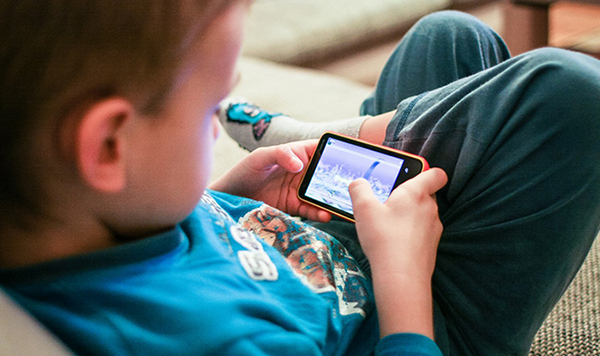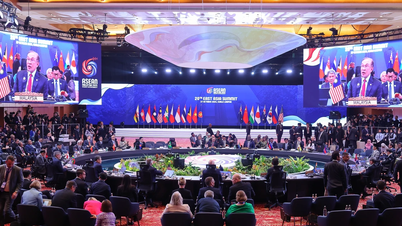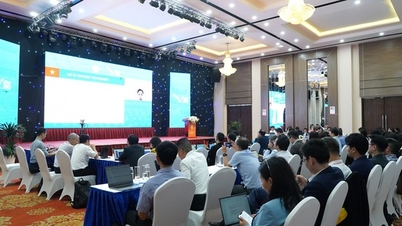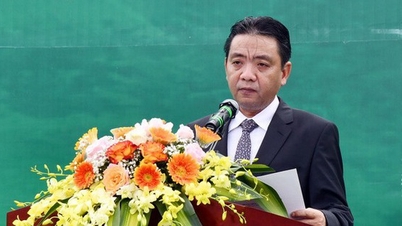(CLO) As concerns about the harmful effects of smartphones and social networks on children grow, many countries are looking for comprehensive solutions at both schools and homes.
Australia: "Ensuring children have a childhood"
Australia made global headlines in November 2024 when its parliament passed a law banning people under 16 from using social media. But much remains unclear about how it will work and what services will be offered.
While some Australian states have banned mobile phones in schools, the federal government ’s new ban will completely restrict children under 16 from social media by the end of the year. The law will empower the communications minister to decide which platforms will be restricted, but it is expected to apply to at least Snapchat, Instagram, Facebook and TikTok.
YouTube is expected to be exempt because of the educational benefits it claims to provide.

Children are being exposed to phones earlier and earlier.
Prime Minister Anthony Albanese said the ban was to ensure "children have their childhoods". He added that the aim was to get children "outside with their friends - away from their phones and onto the football pitch and cricket pitch, tennis court and netball court, in the pool and trying out all the sports they like".
Spain: Children should only use phones with adults
Meanwhile, Spain is preparing a law that would raise the age for opening social media accounts from 14 to 16 and call on tech companies to install age verification systems.
The report also recommends that parental controls be installed by default on smartphones and that a nationwide education campaign be launched to help children and teenagers use social media.
An expert committee recently called on the government to consider placing warning labels on digital devices sold in Spain, informing consumers about the health risks associated with social media and digital devices.
A group of parents in the Basque Country have launched a campaign to reduce children's early phone use. They have convinced local stores to display "You can use our phone" stickers to let children know they don't have to carry their phones with them at all times.
France: Taking back control of the screen
French President Emmanuel Macron has commissioned a report into the issue, saying the country needs to "take back control of screens".
The report, presented in April last year, said children should not be allowed to use smartphones until they turn 13 and should be banned from accessing mainstream social media such as TikTok, Instagram and Snapchat until they turn 18. The report said no child should be allowed to have a phone before the age of 11 and they should only have a handheld device without internet access before the age of 13.
Children need to be protected from the profit-driven strategies of the tech industry, experts say, adding that screens have negative impacts on children's eyesight, sleep, metabolism, physical health and ability to concentrate.
Education Minister Giuseppe Valditara stressed that the decision to ban the use of phones during class is not only to improve the quality of teaching and learning but also to prevent negative behaviors such as students using phones to harass or even attack teachers, as in the unfortunate case that happened recently.
Germany: Delay children's smartphone use as long as possible
Thomas Fischbach, president of the German Pediatric Society, said that children under 11 should not use smartphones, arguing that the devices are harmful to development.
He said children's brains are too vulnerable to exposure to social media "influencers" in particular, with doctors reporting that their clinics are full of young internet users who are starting to develop psychological problems such as chronic anxiety.
“The longer you can delay giving kids smartphones, the better for them,” says Fischbach.
However, while smartphones are a concern and debate for most parents, there has been no general call for a nationwide policy.
Phan Anh (according to The Guardian)
Source: https://www.congluan.vn/nhung-quoc-gia-tien-phong-trong-viec-bao-ve-tre-em-tren-khong-gian-mang-post330081.html



![[Photo] Flooding on the right side of the gate, entrance to Hue Citadel](https://vphoto.vietnam.vn/thumb/1200x675/vietnam/resource/IMAGE/2025/10/28/1761660788143_ndo_br_gen-h-z7165069467254-74c71c36d0cb396744b678cec80552f0-2-jpg.webp)
![[Photo] National Assembly Chairman Tran Thanh Man received a delegation of the Social Democratic Party of Germany](https://vphoto.vietnam.vn/thumb/1200x675/vietnam/resource/IMAGE/2025/10/28/1761652150406_ndo_br_cover-3345-jpg.webp)

![[Photo] Draft documents of the 14th Party Congress reach people at the Commune Cultural Post Offices](https://vphoto.vietnam.vn/thumb/1200x675/vietnam/resource/IMAGE/2025/10/28/1761642182616_du-thao-tai-tinh-hung-yen-4070-5235-jpg.webp)































![[Photo] President Luong Cuong attends the 80th Anniversary of the Traditional Day of the Armed Forces of Military Region 3](https://vphoto.vietnam.vn/thumb/1200x675/vietnam/resource/IMAGE/2025/10/28/1761635584312_ndo_br_1-jpg.webp)













































































Comment (0)